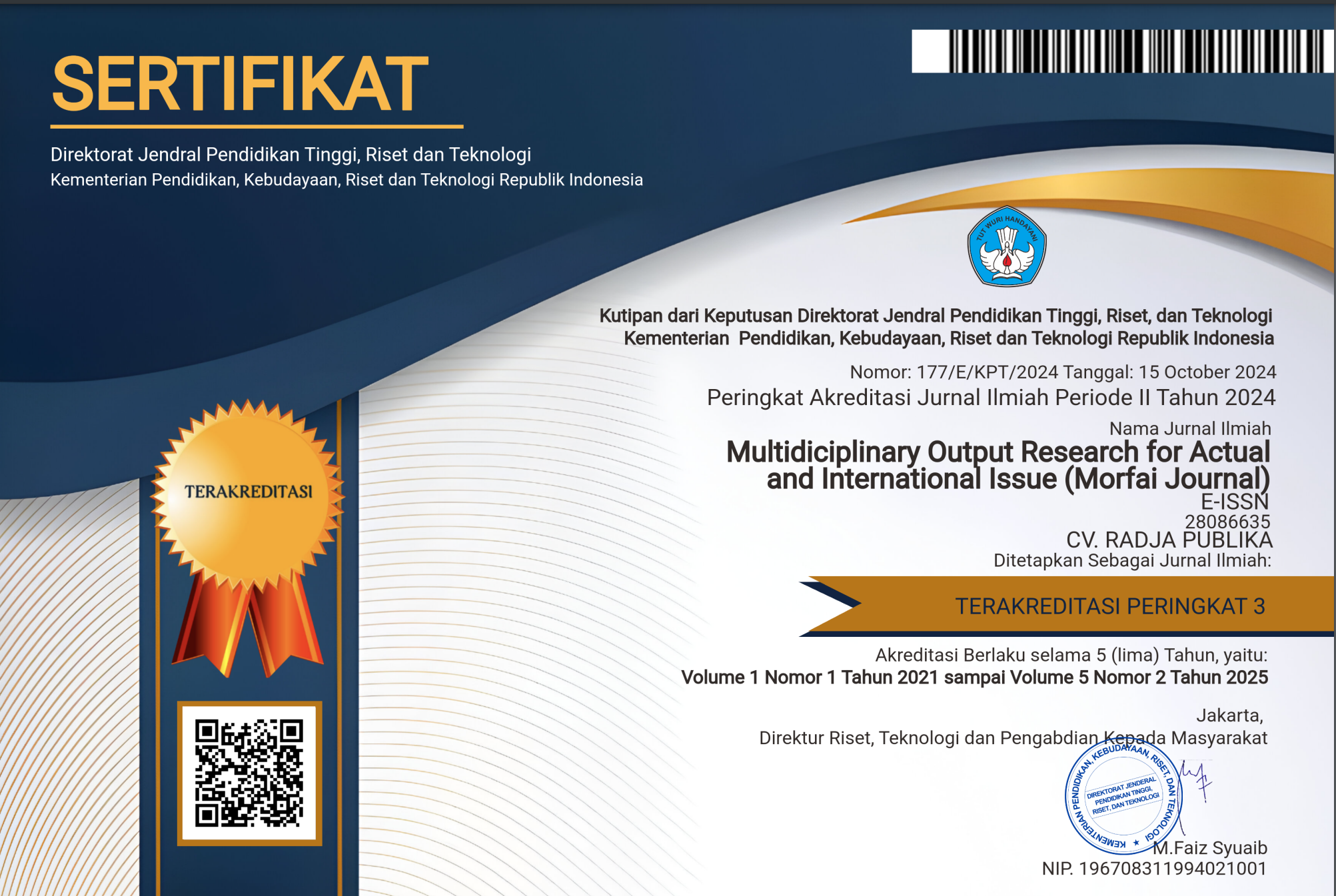A LITERATURE STUDY ON THE DETECTION AND PREVENTION OF PUBLIC SECTOR CORRUPTION THROUGH THE FRAUD TRIANGLE
Main Article Content
Arni Karina
Muhammad Nur
Molina
Kumba Digdowiseiso
Azwadi Ali
The intricacy of governing and the substantial financial damages resulting from corrupt practices within the Indonesian public sector. The objective of this research is to examine the identification and mitigation of corruption in the public sector using the Fraud triangle methodology. The employed approach is Systematic Literature Review (SLR), enabling a thorough examination of the existing research pertaining to this subject matter. The findings of the SLR indicate that a comprehensive comprehension of pressure, opportunity, and rationalization, as outlined in the Fraud triangle, is essential for the identification and mitigation of corruption. The detection process entails identifying factors that increase the likelihood of corruption, while prevention involves implementing structural enhancements, reinforcing internal and external controls, and fostering an organizational culture that prioritizes ethics and integrity. The discussion emphasizes the crucial role of both society and the private sector in establishing a conducive environment that discourages corruption. Ultimately, utilizing the Fraud triangle as a framework to identify and deter corruption in the public sector can serve as the foundation for transparent governance and honesty, leading to favorable outcomes for long-term progress.
Aksa, AF (2019). Prevention and Detection of Corruption Cases in the Public Sector with the Fraud Triangle. Journal of Economics, Business and Accounting (JEBA), 20(4).
Grace, R. (2019). The Role of Good Corporate Governance in Fraud Prevention. Journal of Accounting, 3(1).
Fauzia, A., & Hamdani, F. (2022). Legal Reform for Handling Corruption Crimes by Corporations Through Illicit Enrichment Regulations in the National Legal System. Lex Generalis Law Journal, 3(7), 497–519. https://doi.org/10.56370/jhlg.v3i7.249
Kristiyani Hamidah, D. (2020). Model of Implementing Public Sector Accounting to Prevent Fraud in the Public Sector in the Digital Era. Journal of Business And Accounting, 22(2), 289–304. http://jurnaltsm.id/index.php/JBA
Leksono Putri Handayani, N. (2023). The Role of Information Technology in Public Sector Accounting in Fraud Prevention. Manuhara Journal: Management and Business Science Research Center, 1(2), 27–35. https://doi.org/10.61132/manuhara.v1i2.215
Mochammad Ridwan, Ida Suraida, Budi Septiawan, & Erfiyana Arsika Dewi. (2021). Auditor Skepticism and Fraud Triangle Dimensions in Detecting Fraud. Accuracy: Journal of Accounting and Financial Studies, 4(1). https://doi.org/10.29303/akurasi.v4i1.78
Nuruddinia, M., & Rahmawati, IP (2021). Fraud Triangle and Corruption in Regional Government in Indonesia. Journal of Accounting Research & Accounting Computerization, 12(1).
Pranoto, A., Darmo, AB, Hidayat, I., Indonesia, HP, & Problems, ALB (2018). Juridical Study Regarding Corruption Asset Confiscation. Journal of Legality, X, 91–121.
Prasetyo, DR (2016). Confiscation and confiscation of assets resulting from corruption as an effort to impoverish corruptors. Journal of Legal Studies, 12(2), 136–148.
Putri, AAH (2023). Forensic Audit for Corruption Prevention by Using Whistleblowing for Bribery Detection. Journal of Accounting Development, 10(1).
Rahma, DV, & Suryani, E. (2019). The Influence of Fraud Triangle Factors on Financial Statement Fraud. ASET (Accounting Research) Journal, 11(2), 301–314. https://doi.org/10.17509/jaset.v11i2.17926
Rezki, M., Hasibuan, R., Saparuddin Siregar, ) ;, Muhammad, ) ;, & Harahap, I. (2023). The Effect Of Internal Audit And External Audit On Accounting Fraud In View From The Fraud Triangle Theory (Study Of Soe Companies In Medan City). Journal of Management, Economics, and Accounting, 2(2), 275–286.
Ristianingsih, I. (2019). Examining the Concept of Fraud Diamond Theory in Detecting Fraudulent Behavior in Higher Education. Proceedings of the National Seminar and Call for Papers on Economics and Business, 128–139.
Sastradipraja, U. (2021). The Role of Investigative Audit and Fraud Triangle Control in Bureaucracy on Public Financial Reporting Accountability. Accounting Journal, XVII(1).
Siregar, A. (2020). Fraud Triangle and Corruption in Indonesia. BALANCE: Journal of Accounting, Auditing And Finance, 17(1), 67–81. https://doi.org/10.25170/balance.v17i1
Siswanto. (2010). Systematic Review as a Research Method to Synthesize Research Results (An Introduction). Health Systems Research Bulletin, 13(4), 326–333.
Wachid, MA (2015). Law Enforcement for Corruption Crimes by the Corruption Eradication Commission. Maksigama, 9(1), 91–105. https://doi.org/10.37303/.v9i1.8
Wicaksono, GS, & Prabowo, TJW (2022). Analysis of Factors that Influence Corruption in Regional Government in Central Java Using Fraud Triangle Theory. Owner, 6(1). https://doi.org/10.33395/owner.v6i1.710









